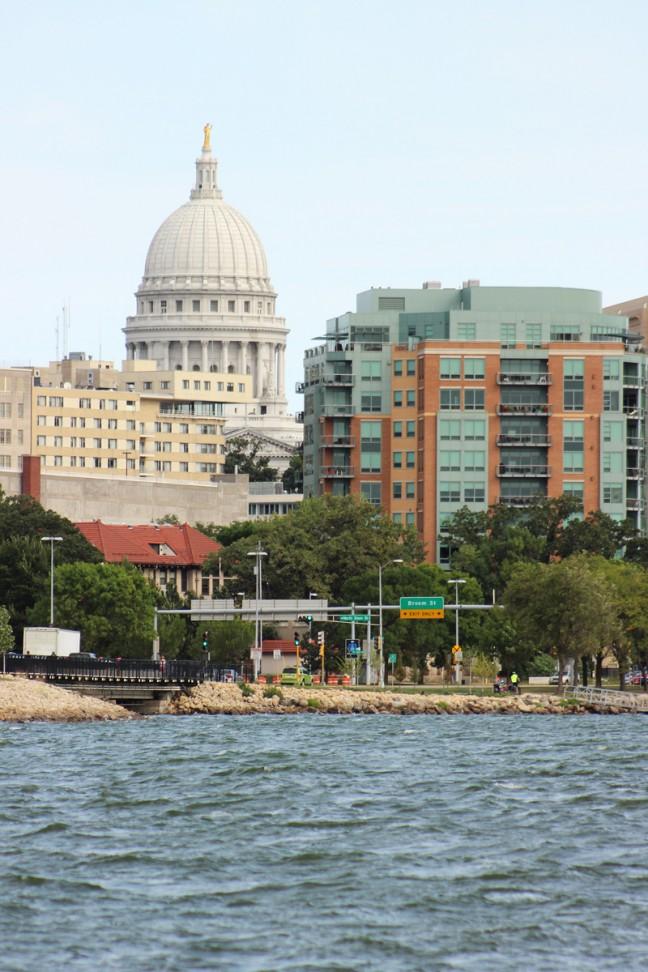A future of driverless cars may arrive sooner rather than later should Madison win the Smart City challenge with help from University of Wisconsin.
UW has been collaborating with the city since December to develop a vision for the future, which could enable the city to meet the requirements of the grant. The plan currently focuses on autonomous transport, connected vehicles and shared data
The University of Wisconsin Traffic Operations and Safety Laboratory is teaming up with the City of Madison to compete for a $50 million grant as part of the federal Smart Cities Challenge.
The Department of Transportation grant will be awarded to the city that proposes the best plan to implement high tech infrastructure. The grant would go toward making the plan a reality.
Autonomous vehicles
Peter Rafferty, Intelligent Transportation System program manager at TOPS, said the key component to the plan involves facilitating the use of driverless cars and other vehicles within Madison. He said the goal is to attract companies like Google to test their prototypes within the city.
Rafferty said manufacturers will likely come to Madison to test their vehicles, but making Madison friendly to these futuristic vehicles serves a longer term goal.
“Longer term Madison will have autonomous micro-transit. Imagine a minibus that can be routed autonomously,” Rafferty said.
These buses would be routed similar to the way Uber works, but would have the backing of the city, Rafferty said.
Connected vehicles
Many new vehicles offer sensors that can notify drivers of surrounding vehicles, Rafferty said. Connected vehicles takes this idea a step further.
Using a dedicated short range communication radio, vehicles can communicate with other vehicles on the road and relay information about traffic and obstructions.
“Vehicles can talk to infrastructure, a car can know when the signals ahead will be green and modify its speed,” Rafferty said.
The technology would also be able to receive information from infrastructure about road conditions, Rafferty said. Conversely, infrastructure could detect when an accident has occurred so that it can notify authorities and redirect traffic.
All together, Raffery said the technology would bring significant efficiency and safety benefits.
Shared data platform
The information shared between roads and vehicles represents a vast amount of data, Rafferty said. To capitalize on this, the city is planning to share this data through a shared data platform.
“[The platform] will be open-sourced and available to app developers and available to anyone who wants to help people with their mobility,” Rafferty said.
Information will not just be limited to movement but also air quality, Rafferty said.
Madison’s chances
Judy Olson, City of Madison grant writer, said Madison has an advantage for securing the grant because some of the infrastructure the plan requires, such as fiber optic cabling, is already in place. She said an innovative workforce from UW and Epic Systems will also be to Madison’s advantage.
Olson said the greatest weakness in the Madison application is that the city itself is not as high profile as competing cities.


